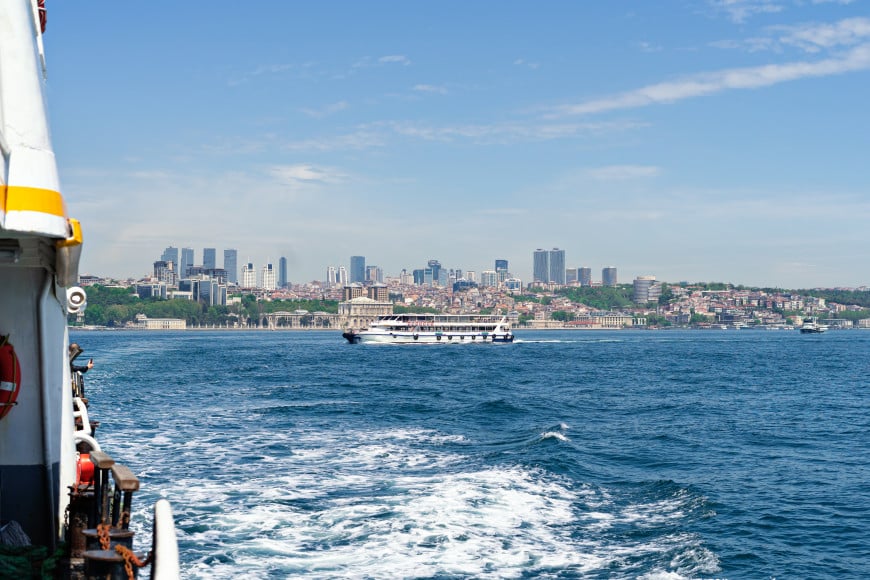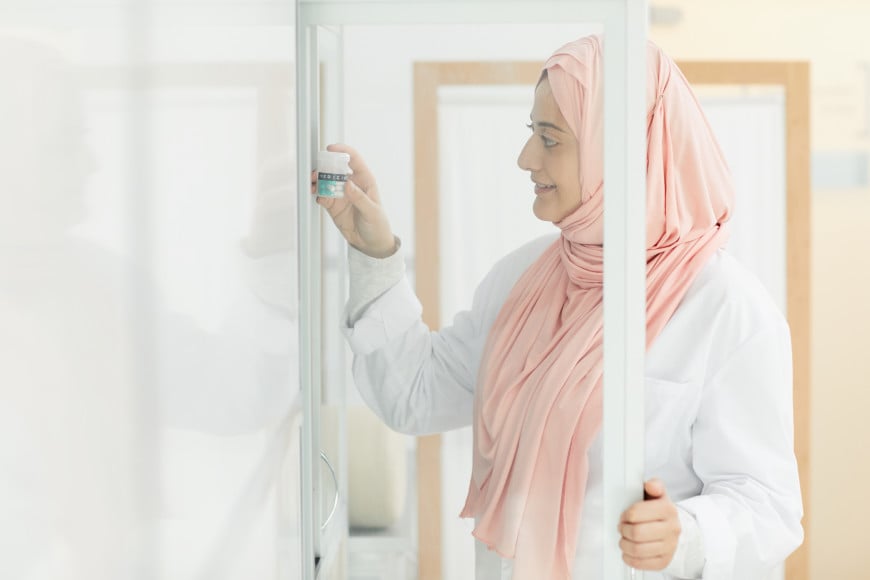In this part of the review, we'll compare the transportation infrastructure of Turkey and Dubai, as well as access to education and medical services. We'll also take a look at how flight connections with other countries are established. These are key aspects of life that one must consider when relocating.
Aerial and Maritime Communication with the World
Dubai is the largest aviation hub of the Emirates.
Direct flights from Dubai fly to more than 200 countries worldwide, with the principal airlines based in the city being Emirates and Etihad Airways. Direct air communication with major Russian cities has also been established, with an average flight time of 5-6 hours, twice as long as flights between Russia and Turkey.
Maritime communication between the port of Jebel Ali in Dubai and ports in other countries is predominantly used for cargo transportation: oil, agricultural products, metals. Passenger services also operate, but they are not as developed as in Turkey.
The largest air hub in Turkey is Istanbul, but there are also international airports in Antalya, Izmir, and Ankara. Direct flights to Russia are also available, with the flight duration dependent on the destination, ranging from 2.5 hours.
The well-developed maritime communication makes Turkey particularly attractive for travellers and business people, with major ports situated in Antalya, Mersin, Izmir, Istanbul. These play a crucial role in cargo transportation and are also used by passenger ships. Thanks to the developed maritime communication, goods can be conveniently and cheaply transported to Turkey in containers - a commonly used method for relocators needing to transport belongings from other countries.
Turkey's advantageous geographical location has also fostered a thriving cruise tourism industry: comfortable liners cruise along the coasts of the Aegean, Black and Mediterranean seas, making stops in Bodrum, Fethiye, Antalya, and other cities. Ferries also run between Turkey and the Greek islands.

Transport Infrastructure
Dubai's public transport system comprises buses, minibuses, taxis, and the metro.
Taxis are the main mode of transportation in the city. In some taxi fleets, there are special cars with female drivers, which are used when a woman needs to travel alone, without accompaniment, or with children.
Metro train carriages are divided into categories: separate areas are designated for children and women. In practice, the distinction is seldom observed, but it's not recommended to risk it. The transport police periodically conduct checks, and violators are fined. Strict rules apply for eating and drinking in Dubai's metro: consumption in the carriages or even on the platform is prohibited, and chewing gum is also banned.
The roads in Dubai are of excellent quality and connect the emirates with each other, as there's no air service within the country. Many sections of the road are toll roads, where you can drive at speeds of up to 140 km/h.
We advise against exceeding the speed limit: in addition to hefty fines, drivers are given a "black mark" — a notation in the system indicating that they have a tendency to break road traffic rules. As soon as a driver accumulates six marks, their car is confiscated and sent to a penalty parking area for 15 days. Certain offences, such as driving on the hard shoulder, merit six marks immediately.
Turkey's transport infrastructure is excellent: there are planes flying between cities, comfortable buses, trains - including high-speed ones. Even smaller towns and villages enjoy good quality roads.

In every resort town, there are car rental offices — a convenient option if you want more freedom of movement and have a driving licence. Foreign driving licences are valid in Turkey for half a year, after which the licence holder will either have to leave the country or obtain a local licence.
Public transport in smaller towns is mainly represented by dolmuş (minibuses) that run along main streets. In coastal towns and Istanbul, water taxis and ferries are used alongside land transport.
Accessibility of medical aid
In UAE, medical insurance is mandatory for foreigners including tourists and expats, who have to purchase their own insurance and ensure it doesn't expire: if it's found to be outdated, you may be fined and refused a visa extension.
Basic insurance covers emergency aid, some tests, diagnostics, surgery, and treatment for certain types of cancer. Dental and ophthalmological services are not included in the insurance so you will have to pay out of your pocket for these. The insurance also doesn't cover the treatment of chronic diseases for the first six months.
About 85% of medical institutions in Dubai are private clinics. Because of their anglophone specialists, foreigners prefer to seek treatment from these private institutions.
You will also be admitted to a municipal clinic without any problems however, the language barrier might hinder you from getting quality health care. To be treated in a municipal hospital, you need a special card — the Health Card, which can be applied for online on the Dubai Health Authority website.
For emergency medical aid in Dubai, you need to call 998. Even for non-residents, the call to the ambulance is free but subsequent treatment is to be paid for.
The medical sector in Dubai is of a high standard, with medical tourism being a flourishing industry in the country. They share this with Turkey, however, prices in Dubai are higher due to their high end clinics that resemble five-star hotels rather than hospital wards. People come to the UAE for infertility treatment, aesthetic surgery, and dermatology services.
Turkey also has insurance-based medical services, with locals obtaining the SGK policy. Foreigners can only access this insurance in their second year of living in the country.
Dental services are not covered by insurance but prices are affordable, and importantly, the cost of services is announced beforehand, so there are no unpleasant surprises in the form of a massive bill.
Clinics in Turkey are segmented into municipal and private, both are equally well-equipped.
In state hospitals, you have the opportunity to consult with medical professors, but it will cost more than a regular doctor consultation. The only downside compared to private clinics is that you sometimes have to wait a few days for an appointment with the desired specialist.
In addition to government and private clinics, family medicine clinics operate in Turkey. Foreigners with residence permits, like the country's citizens, can receive first aid, have vaccinations, undertake simple tests, and get referred to specialist professionals free of charge.
Every clinic has an emergency department – ACIL. This is the place to go when a health problem is not life-threatening, for example, high blood pressure, poisoning, or viral infections. An ambulance is called in life-threatening cases.
Speaking of the overall level of medical development in Turkey, it surpasses the European level in many respects, especially in terms of the cost of services, which are cheaper, and their high-quality.
Medical tourism brings people to the country for dental services, plastic surgery, hair transplant services, and even IVF.

Accessibility of Educational Services
When moving permanently with children, parents want to know what educational opportunities are available in the new country. In this respect, Dubai and Turkey are very similar, the only difference being the cost.
In the Emirates, you will have to pay 2-5 times more for private school education than in Turkey.
●School education in Turkey is compulsory for everyone, beginning at the age of 6 and is represented by both municipal and private schools.It is possible to study free of charge at a state institution if the child has a residence permit. Textbooks and workbooks are provided, but uniforms will have to be purchased out of pocket.
If desired, transport can be paid for, and the school bus will transport the child. The cost of private school education depends on its objective level. Foreign children are allowed to study remotely, meaning they can continue their education in their home school (if the laws of their native country permit), such privileges are not available in many other European countries.
●In Dubai, foreigners seldom choose state schools as instruction is predominantly in Arabic. Getting into a good private school is hard: each has its waiting list, and it can take a year or several years to enrol your child.
Preparing a child for school is very expensive, parents compare costs equivalent to annual tuition at a good university. The school year begins in late August and ends in early July. Meals are not included in private school tuition fees, parents have to ensure that the child brings a snack with them.
Higher education is well developed in both Turkey and Dubai.
There is a significant difference in student admission approaches. For admission to a Dubai university, one needs to pass the IELTS English proficiency test and score at least 5.5 points. In Turkey, a student will be admitted even if they do not know Turkish or English; moreover, such a student is granted an academic year leave and can attend language courses at the university.
Tuition in Turkish state universities averages about 1000 dollars per course. In Dubai, one should expect to pay at least 10-15 thousand dollars per year. There is no free education for foreigners in the Emirates.
Urban Infrastructure
In your city, you are probably used to a certain comfort level: shops near your home, parks for cycling and jogging, children's playgrounds, and shopping centres. But what will happen after moving?
Will it be difficult to find a hairdresser, a vet for your pet, or a market with fresh vegetables? Much of this depends on the city you choose for your life.
●In large Turkish cities, such as Antalya, there will certainly be no difficulties in finding the necessary services. You will easily find a Russian-speaking manicure master, doctor, vet, lawyer, or pastry chef. In smaller cities like Fethiye, it is more difficult, but not much.
Farmers' markets are operating everywhere, they come to each district of the city once a week. Banks, hairdressers, cafes, pharmacies are in all corners of the city, parks and squares are everywhere. Those living in small villages travel to the nearest city for entertainment and shopping. Chain supermarkets operate everywhere, the most popular networks are "Migros", "BIM", A101.
●In Dubai, there is also no shortage of quality services, but their cost is much higher, so you will have to search for suitable places. For example, Russian-speaking girls prefer to go to beauty salons to Filipinas, there it is three times cheaper to have a haircut, do a manicure than in regular salons owned by locals.
Considering the desert climate, leisurely walks in city parks can be forgotten in the summer, and the city infrastructure is not designed for pedestrians. There are many supermarkets, some are democratic, but the assortment in them is limited. If you want, for example, pork, you need to go to Waitrose, the local analogue of "Azbuka Vkusa". Those wishing to save money shop at Geant, the main audience of this chain is visiting Hindus and Pakistanis, the assortment is accordingly, without tongues.
If you missed the first issue of "Turkey vs Dubai", then be sure to watch it:
Also read the first part of the article "Turkey or Dubai #1. Where better to live?»
Well, this concludes the second part of our review. In the third, final, we will compare everything related to real estate, obtaining a residence permit, and citizenship in Dubai and Turkey. Until next time!
We will be happy to answer all your questions, contact us on Whatsapp +90 (532) 158 42 44
If you want to move to live permanently or buy an apartment in Turkeyand enjoy life by the sea, write to our specialists, who will select the best options for your budget.
Also subscribe to our YouTube channel and Instagram page and get information from the professionals!
Additional communication channel with us: Telegram
